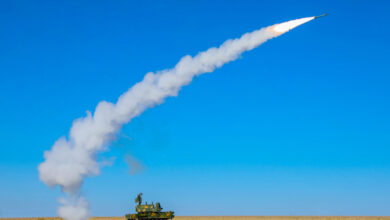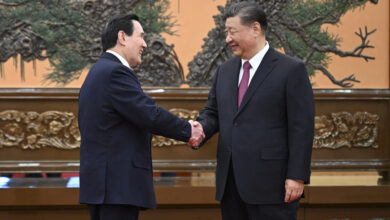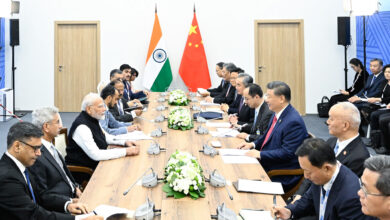China Says Defense Budget to Increase 7.2 Percent in 2023
China on Sunday said it would raise its defense spending by 7.2 percent in 2023, compared with 7.1 percent last year, as its outgoing premier warned of growing “external” threats to Beijing’s rise.
The country will spend 1.55 trillion yuan ($225 billion) on defense this year, according to a report by the Ministry of Finance published on the opening day of the annual session of the country’s rubber-stamp parliament.
The increase is a shade higher than last year and broadly in line with the general pace of annual growth, but exceeds the annual GDP growth target of around five percent announced in a separate report.
Beijing’s military budget is the second-largest in the world after the United States and last year stood at 1.45 trillion yuan ($210 billion), though many overseas analysts say much more money is spent than the officially announced sums.
China’s defense spending still pales in comparison with the United States, which has allotted over $800 billion for its military this year.
Beijing has funneled billions of dollars into modernizing defense in recent years, aiming to transform its huge military into a world-class force rivaling the US and other Western powers.
Military tensions have ramped up in the past year between China and the US, in particular over the status of Taiwan.
Beijing views Taiwan as part of its own territory — vowing to seize it by force if necessary — and held some of the largest military drills around the island in years when the then-US House Speaker Nancy Pelosi visited the self-ruled island last summer.
Washington diplomatically recognizes China over Taiwan but maintains de facto relations with Taipei and supports the island’s right to decide its own future.
‘Peaceful Reunification’
In a separate speech to present the government’s work report on Sunday, China’s outgoing Premier Li Keqiang warned that “external attempts to suppress and contain China are escalating.”
“The armed forces should intensify military training and preparedness across the board… devote greater energy to training under combat conditions, and… strengthen military work in all directions and domains,” he said.
Li made a standard reference to opposing “separatism” in Taiwan and formal independence for the island, repeating Beijing’s long-held position.
“We should promote the peaceful development of cross-Strait relations and advance the process of China’s peaceful reunification,” he said.
China has also butted heads with Japan over competing claims to the uninhabited Senkaku Islands — known as the Diaoyu in Chinese — and has engaged in deadly brawls with Indian soldiers over stretches of disputed territory high in the Himalayas.
Chinese authorities have also built artificial islands, conducted patrols, and harassed foreign fishers in the contested South China Sea, which Beijing claims in almost its entirety despite an international court ruling that the claims have no legal basis.












